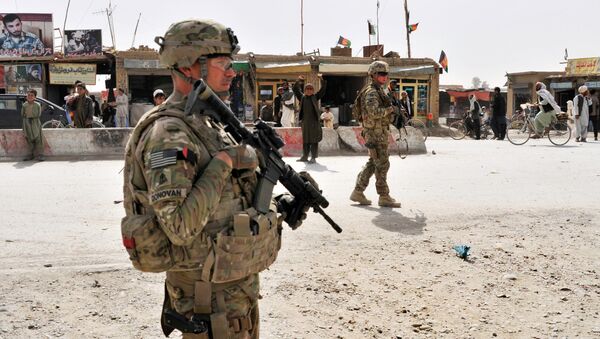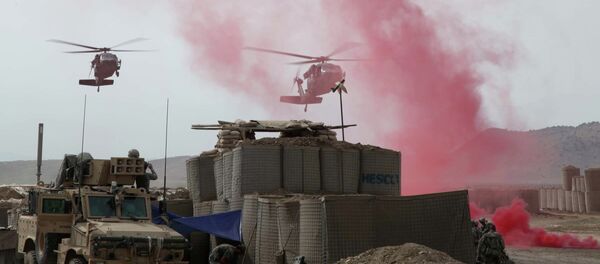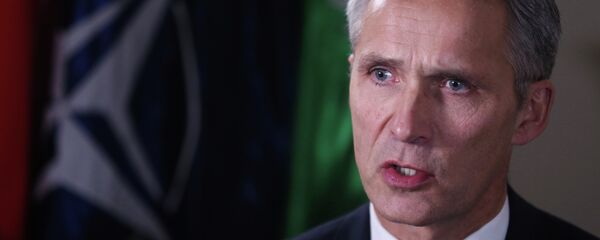"The long term development of the country can't be done by the military alliance, because it does not have the credibility in the civilian agencies, civil society and among citizens," Jasteena Dhillon, International, Military and Development Affairs Consultant at the University of Windsor Law School told Sputnik.
According to NATO officials, "Resolute Support" will not involve combat operations; its assistance will be directed primarily toward Afghan ministries and institutions, as well as the higher command level of the Afghan security forces.
The Alliance has staked its latest security policy in Afghanistan on the capacity of the Afghan national army and police to step up after the withdrawal of NATO's troops. However, the performance of the Afghan security forces has been mixed. They have been hit by an enormous number of casualties and suffered setbacks in several Afghan provinces trying to oust the Taliban.
Marvin Weinbaum, who served as an analyst for Pakistan and Afghanistan in the US Department of State's Bureau of Intelligence and Research, believes that "the Taliban had, in fact, been neutralized once in 2001 but the combination of their finding in Pakistan and the US distraction with the disastrous Iraq war enabled the Taliban to regroup."
They capitalized on the peoples' disappointment with the Karzai government, namely its corruption and its failure to provide the services and governance that Afghans so badly wanted, he added.
According to Weinbaum, NATO's decision to launch a follow-on mission demonstrates that the military block is trying to help the Afghan leadership stabilize the situation in the country.
In September, Afghanistan signed a long-term security agreement with the United States and NATO, authorizing the presence of 9,800 American and at least 2,000 NATO troops in the country after the end of 2014.
Jasteena Dhillon agreed that in the normal course of peacekeeping missions, the transfer from an active phase, with military and political intervention and humanitarian assistance, to another — with a holistic array of actors that continue to offer a stabilizing influence, political advice and facilitate human rights — is a natural progression.
Dhillon recalled that this approach "was tested in Bosnia and has remained — with a few tweaks here and there — the norm since then in most interventions by NATO and the United Nation including Kosovo, Iraq, East Timor and South Sudan."
However, Dhillon questioned why the traditional peacekeeping model doesn't work in places like Afghanistan and Iraq. She thinks that the answer lies in the interests that "the intervening countries might have in the region."
Other experts also questioned the economic factors of the "Global War on Terrorism."
Michel Chossudovsky, who is an award-winning author, and founder and director of the Centre for Research on Globalization, wrote in his article "The War is Worth Waging: Afghanistan's Vast Reserves of Minerals and Natural Gas" that the war on Afghanistan is part of a profit driven agenda.
In addition to its vast mineral and gas reserves, Afghanistan produces more than 90 percent of the world's supply of opium.
According to a report released in November by the United Nations, opium poppy cultivation rose 7 percent, with the area used for poppy cultivation expanding to 224,000 hectares from 209,000 hectares in 2013, and has at least doubled since 2001 when the Alliance launched the "Global War on Terrorism."
As of October, more than 34,000 troops from NATO and partner countries were deployed in Afghanistan under the ISAF mission, with the United States accounting for nearly 70 percent. The new mission will bring together some 12,000 troops from NATO member states, as well as 14 partner countries.
On December 28, NATO marked the transition to a new non-combat mission in a ceremony at the alliance's headquarters in Kabul.




